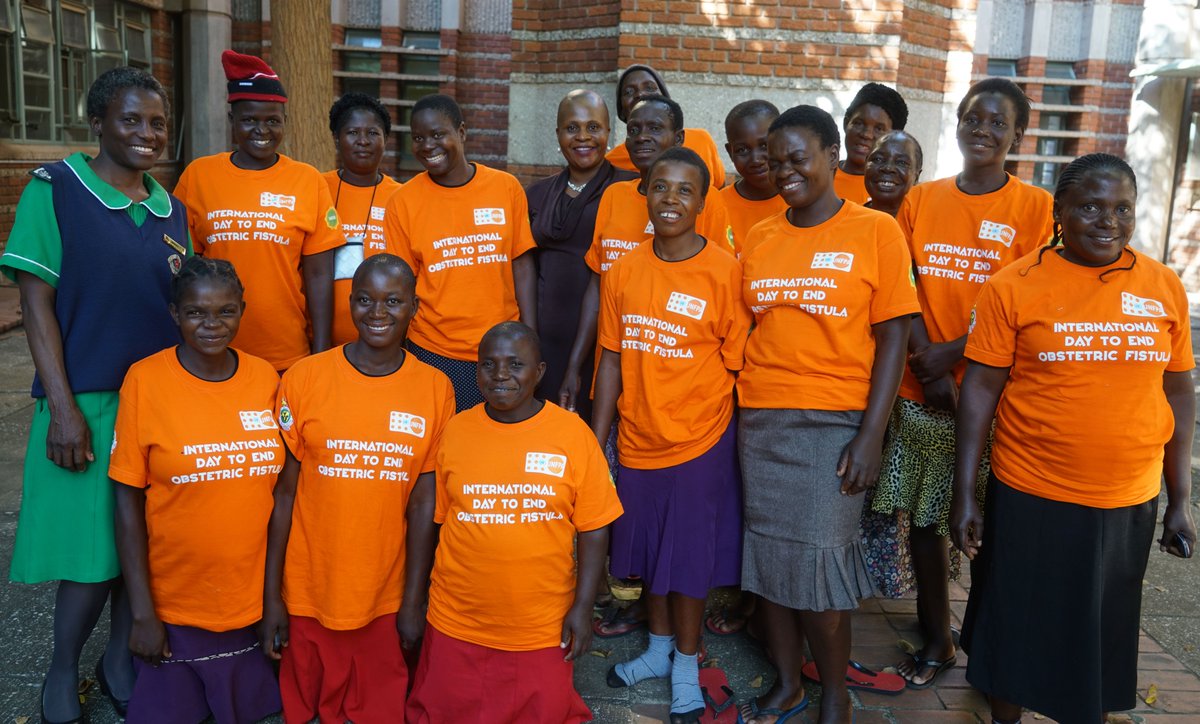By Byron Mutingwende
Gamuchirai Tsiga (not her real name) rues the year she fell pregnant as a teenager while she was doing her Form Three at a school in the remote Karoi District of Mashonaland West Province.
“I was 16 years old when I fell pregnant. My lover Gerald had promised me heaven on earth in our relationship to the extent that I would not listen to my parents’ advice to concentrate on my schoolwork. He spoilt me with goodies and when he asked for sex, I readily obliged because I was confident he would marry. When I fell pregnant for him, Gerald paid my lobola and started living with me. The problems started when I lost my twins during birth. I learnt that I had raptured my womb and bladder and would no longer bear children in future,” Tsiga said, sobbing.
Tsiga said the loss of her twin boys shattered her husband who was desperate to have children. Her situation was exacerbated by the fact that she was diagnosed with obstetric fistula. Due to her condition, she cannot control her urine and faeces.
“It was a harrowing experience for me. I would wake up with my bed wet and in worst cases I would be sleeping on my own stool. My husband became abusive and would beat me hard for making the house inhabitable. In the end he banished me from home and divorced me. That was the end of the story with Gerald.”
Her woes did not end there. Tsiga found it difficult to go to funerals or attend community meetings and neither would she feel comfortable travelling with public transport, as people would always ridicule her for spoiling herself.
According to the United Nations Population Fund (UNFPA), obstetric fistula is one of the most serious and tragic injuries that can occur during childbirth. It is a hole between the birth canal and the bladder or rectum caused by prolonged, obstructed, labour without timely access to emergency obstetric care, notably a caesarean section. It leaves women leaking urine, faeces or both and over time, it leads to chronic medical problems. Sufferers also endure depression, social isolation and deepening poverty.
Dr. Edwin Mpeta, a Reproductive Health Specialist with UNFPA said obstetric fistula most occurs among women and girls living in extreme poverty, especially those living far from medical services. He said it is more likely to afflict girls who become pregnant while still physically immature.
“Women and girls with fistula are unable to work, and many are abandoned by their husbands and families, and ostracized by their communities driving them into poverty,” Mpeta said.
In a speech read on his behalf during the commemoration of the International Day to End Obstetric Fistula held at Chinhoyi Provincial Hospital on 23 May 2017, Dr. David Parirenyatwa, the Minister of Health and Child Care said more than 2 million women in Sub-Saharan Africa, including Asia, the Arab region and Latin America were living with this injury, and some 50 000 to 100 000 new cases develop each year.
“In Zimbabwe there are more than 500 women with obstetric fistula waiting to be repaired. The Ministry of Health and Child Care is committed to the prevention and treatment of obstetric fistula as well as rehabilitation and empowerment of survivors,” Parirenyatwa said.
May 23 is the United Nations’ International Day to end Obstetric Fistula, which aims to promote action towards treating and preventing obstetric fistula, a condition that affects many girls and women in developing countries.
Parirenyatwa said the inter-linkages between poverty, malnutrition, lack of or inadequate or inaccessible healthcare services, early child-bearing, child marriage, violence against young women and girls and gender discrimination were the root causes of obstetric fistula while poverty remains the main social risk factor.
Kudakwashe Tsekete, Naome Matare, Gladys Chinyama and Violet Simamba are among some women whose obstetric fistula conditions were successfully treated at Chinhoyi Provincial Hospital.
“More than 32 years ago, I gave birth to my last child and raptured my bladder. Urine would come out uncontrollably. I became an outcast in Chiredzi my home area. No one wanted to be in company with me be it at a funeral, on the bus or even at home,” Chinyama said. She equated the help she got at Chinhoyi Provincial Hospital as a miracle that had restored hope and the long-lost dignity.
Cheikh Tidiane Cisse, the UNFPA Country Representative in Zimbabwe said complications during pregnancy and childbirth are the leading causes of death and disability among women of reproductive age (15-49 years).
“The maternal mortality rate remains high at 651 deaths per 100 000 live births (ZDHS) which translates to about 8 women dying every day of pregnancy related complications. It is estimated that for every woman who dies due to pregnancy related causes another 20-50 suffer severe morbidities such as obstetric fistula, one of the most serious and tragic injuries that occur during childbirth,” Cisse said.
He revealed that in 2003, UNFPA and its partners launched the global Campaign to End Fistula, which now works in more than 50 countries to prevent, treat fistula, rehabilitate and empower survivors. Over the last 12 years, UNFPA has, globally, directly supported more than 57 000 surgical repairs for women and partner agencies have supported thousands more.
Priscilla Mabhande, the National Coordinator of the Women and Health Alliance International (WAHA) hailed the support of the Ministry of Health and Child care and UNFPA towards addressing the fistula problem. Mabhande said that to date, a total of five fistula repair camps have been conducted and more than 300 women have benefitted from these fistula repair camps and more than 500 women are on the waiting list. In addition, a total of 12 doctors and 46 nurses are receiving training in the pre and post operative management of obstetric fistula through a mentorship programme led by WAHA.
